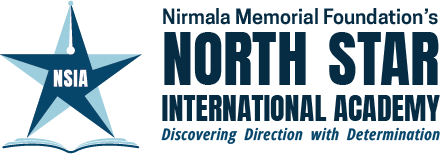Secondary
In the Secondary section the school provides a broad and balanced education which not only prepares students for public examinations but also gives them the confidence to achieve success throughout their adult lives.
Languages
- Develop the capacity for accurate communication using language skills for description, analysis and response
- Appreciating the language and literary and cultural heritage in and related to language by exploring the various forms of literary devices
- Developing the ability to recognise basic linguistic aspects (word and sentence structure) and use them in oral and written expression
- Developing the ability to write reviews and use the library to find references
- Developing an appreciation of the distinctive features of the particular language, including its alphabet and script, sounds, rhymes, puns and other wordplays and games unique to the language
Mathematics
- Understand numbers, ways of representing numbers, relationships among numbers, and number sets.
- Discover and prove algebraic identities and uses such identities to solve equations.
- Analyse characteristics and properties of two-dimensional geometric shapes and develop mathematical arguments to explain geometric relationships.
- Derive and use formulas to calculate areas of plane figures, and surface areas and volumes of solid objects.
- Analyse and interpret data using statistical concepts (such as measures of central tendency, standard deviations) and probability.
- Begin to perceive and appreciate the axiomatic and deductive structure of mathematics. Uses stated assumptions, axioms, postulates, definitions, and mathematics vocabulary to prove mathematical statements and carry out geometric constructions.
- Appreciate important contributions of mathematicians from India and around the world.
- Sharpen skills such as visualisation, optimisation, representation, and mathematical modelling, and their application in daily life.
- Develop computational thinking, i.e., deals with complex problems and can break them down into a series of simple problems that can then be solved by suitable procedures/algorithms.
- Explore connections of mathematics with other subjects.
Science
- Explore the world of matter, and its constituents, properties, and behaviour
- Explore the physical world around them in scientific and mathematical terms
- Explore the living world around us, and its interaction with the inanimate world in scientific terms
- Understand the components of health, hygiene, and wellbeing
- Understand the interface of science, technology, and society
- Explore the nature and processes of science through engaging with the evolution of scientific knowledge and conducting scientific inquiry
- Communicate own questions, observations and conclusions related to science.
Computer Studies / ICT
- Delve into file management, computer ethics, networks and cybersecurity
- Learn blogging, computer maintenance and troubleshooting,
- Office software-MS Excel.
- Learn Animation basics in 2D and 3D using Krita and Blender.
- Audio-Video editing skills with Audacity and OpenShot.
- Introduction to coding advances with Javascript and Python and mobile app development via AppInventor.
- Explore emerging fields like Artificial Intelligence (AI), Robotics, and Data Science.
Social Sciences
- Recognise ways in which political, social and economic issues which affect their daily lives across time and space.
- Understand about the earth as the habitat of humans and other forms of life
- Become familiar with one’s own region and realises interdependence of various regions (local to global)
- Understand spatial distribution of resources and their conservation
- Understand historical developments in different periods of Indian history
- Comprehend how historians study the past using different types of sources
- Understand historical diversity to relate developments of one place/region with those of another
- Imbibe the values of the Indian Constitution and their significance in everyday life
- Gain a sense of the working of Indian democracy, its institutions and processes at the local, state and union levels
- Become familiar with socio – economic role of institutions such as family, market and government
- Recognise the contributions of different section s of society to political, social, cultural, and environmental processes
Co-Curricular Activities
- Dance
- Speech and Drama
- Music
- P.Ed.
- Art and Creativity
After School Activities
- Football
- Cricket
- Lawn Tennis
- Swimming
- Skating
- Dance
- Music
- Chess
- Speech & Drama
- Yoga/ Karate
- Basket Ball
- Volley Ball
- … and other activities as per availability and demand







